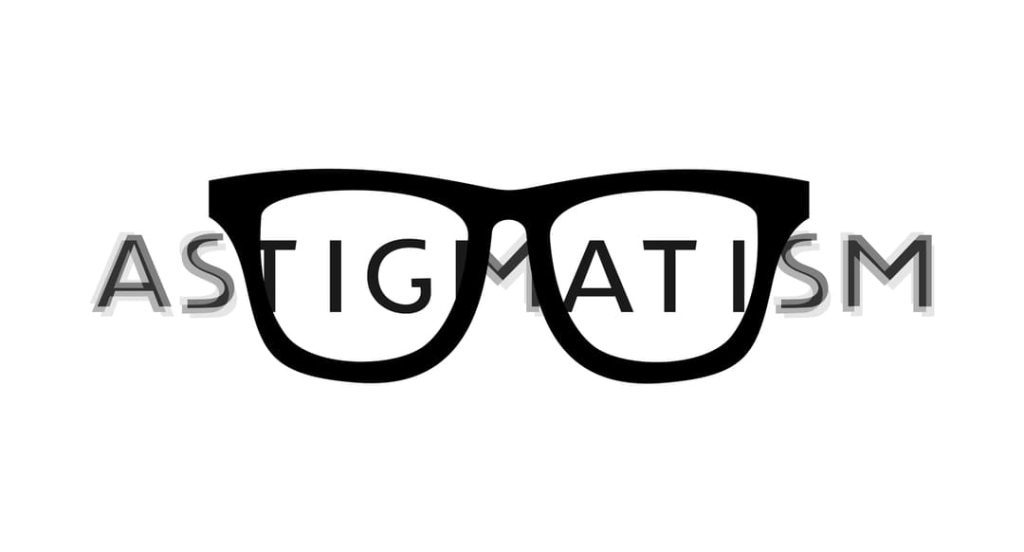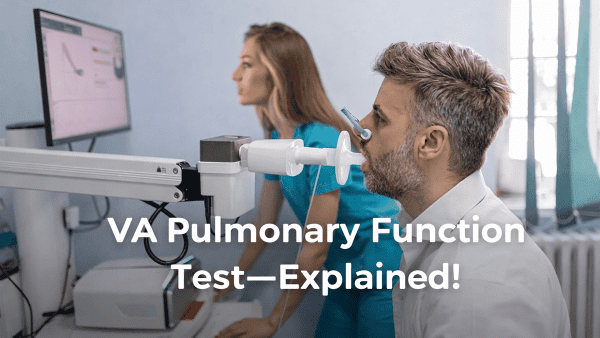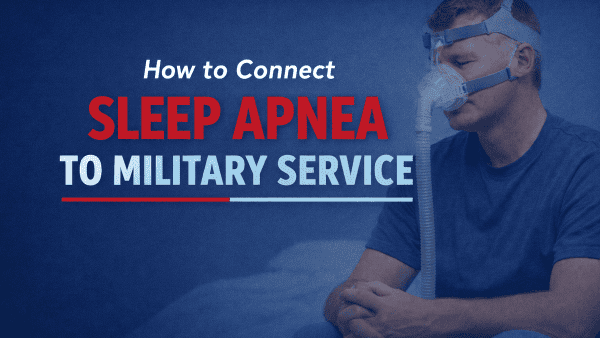Looking for Expert-Level VA Claim Answers?📱Call Us Now! 737-295-2226
Blurry vision. Eye strain. Trouble driving at night. If you’ve experienced these symptoms after your military service, you may be wondering whether you qualify for an astigmatism VA rating—and the answer depends on how the VA evaluates vision loss.
While regular astigmatism that’s correctable with glasses is usually not compensable, irregular astigmatism caused by service-connected injury, surgery, scarring, or chemical exposure may qualify for VA disability compensation. In some cases, eligible veterans can receive $1,000 or more per month in tax-free VA benefits, depending on the severity of visual impairment.
In this guide, we’ll break down:
- When astigmatism becomes eligible for VA disability
- How the VA actually rates astigmatism under 38 CFR § 4.79
- What medical evidence you need to prove service connection and strengthen your claim
Let’s get started.
Summary of Key Points
- Regular astigmatism (correctable with lenses) is typically not rated unless secondary to another VA-rated eye condition.
- Irregular astigmatism may be eligible for compensation if caused by trauma, surgery, scarring, or chemical exposure tied to service.
- The VA uses visual acuity loss, not “astigmatism” by name, to determine your rating under 38 CFR § 4.79.
- Ratings can range from 0% to 100% based on corrected vision and diagnostic codes like DC 6009 (unhealed eye injury) or DC 6035 (keratoconus).
- A current diagnosis, service connection, and strong medical evidence are essential to getting your claim approved.
Table of Contents
What is Astigmatism?

Astigmatism is a common eye condition caused by an irregular shape of the cornea or lens, which leads to light being unevenly focused on the retina. This can result in:
- Blurry or distorted vision
- Eye fatigue
- Double vision
- Difficulty seeing clearly at night
Many people have mild astigmatism corrected with glasses or contact lenses. But in some cases, especially for veterans, astigmatism may result from injuries, trauma, or illness connected to military service.
Regular vs. Irregular Astigmatism
There are two primary types of astigmatism:
- Regular Astigmatism: Smooth, football-shaped curvature of the cornea; typically correctable with standard lenses. The VA generally does not rate this type unless it’s secondary to another ratable eye condition.
- Irregular Astigmatism: Uneven or misshapen cornea, often caused by injury, scarring, corneal surgery, or conditions like keratoconus (where the cornea thins and bulges outward). This type is potentially ratable if connected to service.
Example: Veterans exposed to sulfur mustard or other chemicals may experience corneal damage leading to irregular astigmatism.
How the VA Rates Astigmatism

There is no actual VA rating for astigmatism. Instead, the VA uses 38 CFR § 4.79 – Schedule of Ratings for the Eye to evaluate vision-related disabilities. Astigmatism itself doesn’t have a dedicated diagnostic code—instead, the VA focuses on visual impairment, specifically central visual acuity and visual field loss.
Diagnostic Codes That May Apply:
- DC 6061–6066 – Impairment of central visual acuity
- DC 6009 – Unhealed eye injury (e.g., corneal scarring causing astigmatism)
- DC 6035 – Keratoconus
To qualify for a rating, the veteran must typically show 20/40 vision or worse in one or both eyes, even with corrective lenses.
Visual Acuity Ratings (Simplified)
The VA rates vision loss based on how well you can see with correction (i.e., with glasses). Here’s a summary of how ratings are assigned under DC 6061–6066:
| Vision in One Eye | Vision in Other Eye | VA Rating |
| 5/200 or worse | 5/200 or worse | 100% |
| 20/100 | 20/100 | 50% |
| 20/70 | 20/70 | 30% |
| 20/50 | 20/50 | 10% |
| 20/40 | 20/40 | 0% |
Source: VA Schedule for Rating Eye Conditions (38 CFR § 4.79)
Proving Service Connection
To qualify for VA disability, you need to show that your astigmatism is service-connected. This requires:
- A current diagnosis (preferably from a qualified eye specialist)
- A record of the in-service injury, illness, or event
- A medical nexus linking your condition to your military service
View the VA’s guidance on medical opinions and nexus letters
See Also: Insider’s Guide to VA Eye Disability Ratings
VA Disability Compensation
If your astigmatism qualifies for a rating based on visual acuity, monthly compensation depends on the assigned percentage and current VA disability compensation rates. You can quickly and easily calculate your VA disability compensation with our FREE VA disability calculator.
Real-Life Example: How One Veteran Won Benefits for Astigmatism
SPC Harris, a former Army medic, sustained a facial injury during a vehicle rollover. Years later, he experienced chronic blurry vision and eye strain. An ophthalmologist diagnosed irregular astigmatism due to corneal scarring.
The VA initially denied his claim. But after submitting a detailed nexus letter connecting the injury to his service, the VA approved his appeal.
- Final VA Rating: 30% under DC 6009 (Unhealed eye injury)
How to File a Claim
To apply for VA disability for astigmatism:
Complete VA Form 21-526EZ and submit it:
- Online via VA.gov
- By mail to:
Department of Veterans Affairs
Evidence Intake Center
PO Box 4444
Janesville, WI 53547-4444
- Or deliver it in person to your local VA Regional Office
C&P Exam for Astigmatism
If you file a VA claim for astigmatism, you’ll likely be scheduled for a Compensation & Pension (C&P) exam. This exam evaluates:
- Your corrected and uncorrected visual acuity
- Whether your astigmatism is regular or irregular
- Any damage to your cornea or lens
- Whether your astigmatism is connected to your service
Important: Only an optometrist or ophthalmologist can perform a valid C&P exam for eye claims. If another provider is assigned, notify the VA.
Conclusion
Even though astigmatism isn’t typically rated directly, many veterans qualify for VA disability when the condition is irregular and tied to service-related injuries or illness. The key is having the right diagnosis, understanding how the VA rates vision loss, and providing clear medical evidence that connects the dots.
If your vision has worsened due to military service (and especially if it impacts your daily life or job), you may be eligible for significant VA compensation.
Want Expert-Level Support with Your VA Disability Claim? WE GOT YOUR SIX!
How does VA Claims Insider support veterans?
We make the confusing and frustrating VA claim process EASY through our 8-step proprietary system and one-on-one coaching; we’re the VA Claim EXPERTS you can trust, and YOU are never alone in this fight against the VA!
You’ll also receive VA disability expert Brian Reese’s SEM Method Blueprint—a proven formula that has helped over 25,000 veterans win their VA disability claims:
Strategy + Education + Medical Evidence = VA Rating and Compensation You Deserve!
Start today and unlock an exceptional level of service you deserve for serving our country:
- You’ll hear from a VA Claim Expert over email within 15 minutes of signing up today.
- You’ll hear from your Veteran Coach team within 24 hours of all inquiries during normal business days/hours.
- Our terms are clear and simple: If we don’t win, you don’t pay. You have nothing to lose and everything to gain.
Click the red button below to start the process of winning your VA claim right now!
About VA Claims Insider
- VA Claims Insider is the #1 most trusted name in VA disability claims.
- Work directly with a VA claims coach who can educate throughout the claims process.
- 25,000+ disabled veterans have served in our membership programs since 2016.
- 30% average rating increase for veterans who complete our #1-rated Elite program.
- 4.7/5.0 average rating out of 5,500+ total reviews; over 4,500 5-star reviews.
FAQs
Can I get VA disability for astigmatism?
Yes—if your astigmatism is caused or worsened by a service-connected event or condition. The VA does not award disability ratings for regular astigmatism alone, but irregular astigmatism linked to trauma, surgery, or illness may qualify. The key is proving a medical connection to your time in service.
How is astigmatism rated by the VA?
Astigmatism itself isn’t rated; your vision loss is. The VA uses visual acuity tests to evaluate how clearly you can see with correction (glasses or contacts). Ratings are based on this level of visual impairment and may fall under codes for unhealed eye injury (DC 6009) or keratoconus (DC 6035) if applicable.
Will wearing glasses affect my VA rating for astigmatism?
Yes. The VA bases your rating on corrected vision, meaning how well you can see with glasses or contacts. If your corrected vision is still impaired (e.g., 20/70 or worse), you may qualify for a rating. But if your vision improves significantly with correction, the VA may assign a lower rating—or none at all.
What conditions can cause secondary astigmatism?
Irregular astigmatism may develop due to corneal injuries, chemical exposure, trauma, or surgeries that damaged the eye. Conditions like keratoconus, corneal scarring, or even traumatic brain injuries (TBI) can also lead to astigmatism that might qualify for secondary service connection.
Content Reviewed By

Quality Assurance Team
The Quality Assurance (QA) team at VA Claims Insider has extensive experience researching, fact-checking, and ensuring accuracy in all produced content. The QA team consists of individuals with specialized knowledge in the VA disability claims adjudication processes, laws and regulations, and they understand the needs of our target audience. Any changes or suggestions the QA team makes are thoroughly reviewed and incorporated into the content by our writers and creators.
Author

Sherry Christiansen
Sherry Christiansen is a professional Medical Writer with a clinical mental health background. Over the last decade, she has written health and wellness articles for organizations like Medical News Today, Verywell Health, and Healthline. In 2013, she also helped launch an educational website for the first Alzheimer’s prevention clinic in the country at Weill Cornell Medical Center – NewYork-Presbyterian. As a spouse of a career military service member, Sherry is deeply passionate about supporting veterans. It is an honor for her to assist veterans in receiving the benefits they deserve after becoming ill or injured while serving our country.



